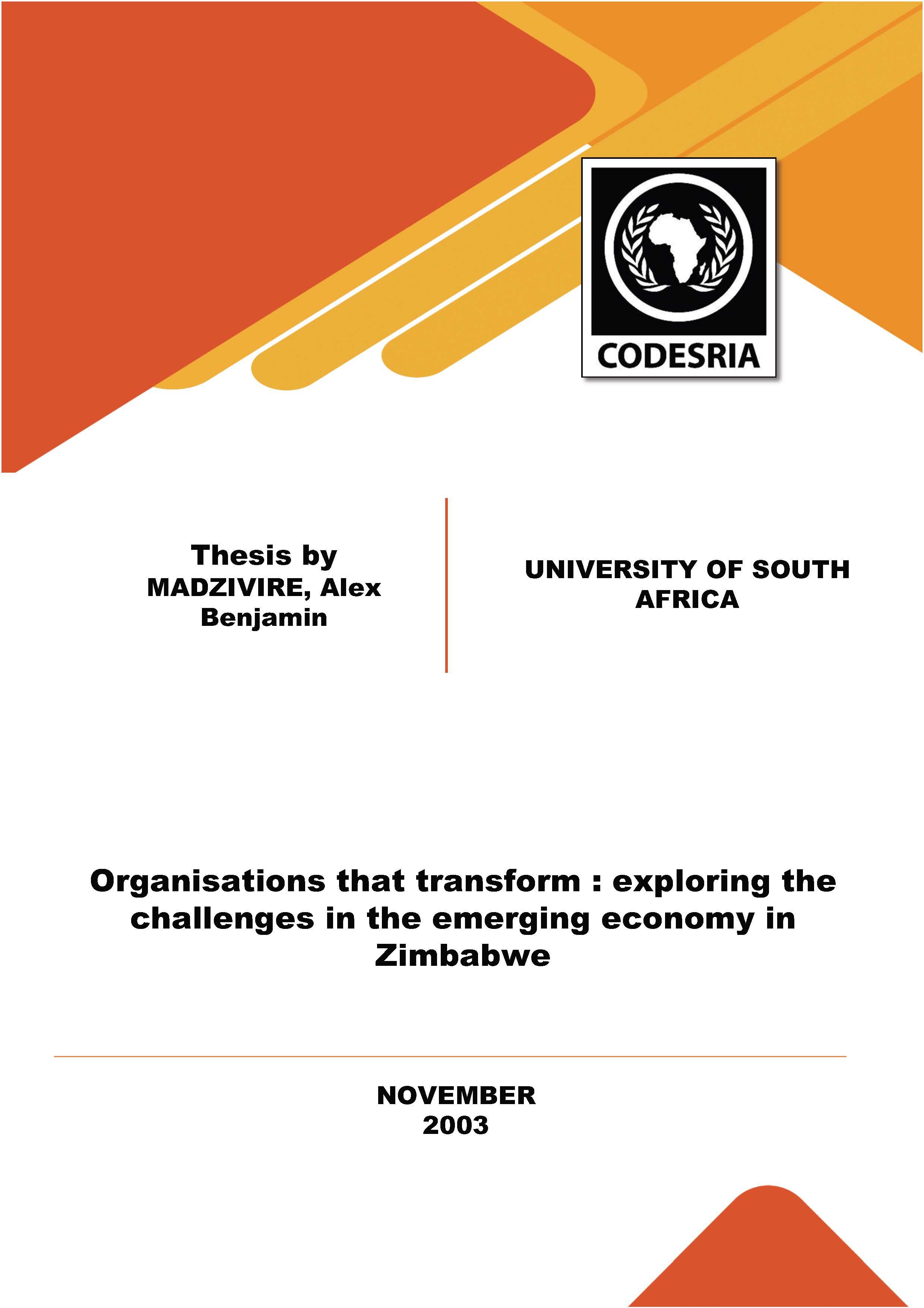Organisations that transform : exploring the challenges in the emerging economy in Zimbabwe
Keywords:
Organizational change, emerging economy, ZimbabweSynopsis
An intensive literature search on change theories revealed that:
There is a knowledge gap in terms of the applicability ·of existing change theories in non-Western,
emerging economies;
The transformation theory arena has been driven by case studies;
Change theories have tended to be prescriptive, with very little, if any empirical testing; and
There has been no change theory cited which is a prescription for emerging economies.
This study examines the challenges of organisational transformation in emerging economies with special
reference to Zimbabwe. lt also develops a theory/model, the Madzivire Transformation Mode! - Ma Tra; and
elaborates it to become the Madzivire Collaborative Transformation Mode! - MaCoTra.
A longitudinal multiple case study design is used to capture the experiences (in transformation) of four
companies spanning from 1980 when Zimbabwe attained its independence to 2000.The four cases cover four
business sectors.
To understand the thought processes underlying major decisions made a long the way, perspectives of major
stakeholders like business executives, worker opinion leaders, the media, customers, suppliers, government
and civic society are included.
The study is, therefore, an inductive study using grounded theory, rooted in case study methodology based
on Eisenhardt's (1989) eight steps of building theory from case study research. The product is consistent with
Leedy's (1997:163) argument that"the theory is grounded in that it is developed from the data, as opposed to
being suggested by the literature; that is, theory is an expected outcome from, rather than the starting point
for the study''.
Multiple data collection methods have strengthened the grounding ofthetheory bytriangulation of evidence.
Fourteen constructs from the within-case analysis form the basis of data collection and these constructs
are refined through cross-case analysis. Nine themes and sixteen challenges emerge from the study. The
challenges and themes are used to identify points of convergence as well as divergence. Issues that trigger
organisational transformation are spotted and best practices in organisational transformation explored.
Downloads
References
African lntellectual Resources (AIR). (2003). Grant Fellows Leadership Programme Cohort
: Phase Il Learning Handbook. AIR: Sandon
Aldrich H. (1999). Organizations Evolving. Sage: London.
Anonymous A ut hors. (1999). 'Special: Re-emerging economies.' Economist, 35 7 (B 7 7 6),
April: 21-23.
Arnold D. J. & Quelch J. A. ( 1998). 'New strategies in emerging markets.' Sloan Management
Review,40(7), Fall: 7-20.
Avittey G. B. N. (1999).' Africa Betrayed,' cited in Mbigi (2007)
Beer M. & Nohria N. (2000). 'Cracking the Code of Change'. Harvard Business Review, MayJune:
-141.
Bell J. (2001 ).'Seeking a Higher Ground: Mount Carmel CEO employs new leadership model
to inspire, retain employees and boost operations'. Business First: The Greater Columbus
Business Authority, 27 July.
Bishop C. H. (Jr). (2001 ). Ma king Change Happen One Person at a Time: Assessing Change
Capacity within Your Organization. Amacon: New York.
Boon M. (1996). The African Way: The power of interactive leadership. Zebra Press: Wynberg, Sandon.






